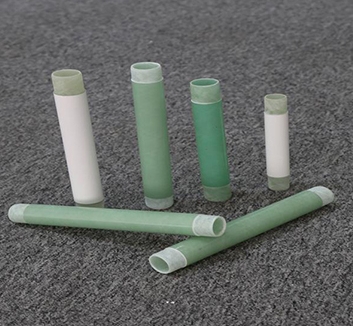- 13
- Jan
Која је разлика између цеви за намотавање епоксидног стакленог влакна и цеви од епоксидног стакленог платна?
Која је разлика између цеви за намотавање епоксидног стакленог влакна и цеви од епоксидног стакленог платна?
Difference 1:
High temperature resistance. The high temperature resistance grade of epoxy glass fiber wound pipe is Class B, that is, 155°C, and some performances are particularly good, for example, the model G11 can reach 180°C. Because it is used in electronic products, high temperature resistance is a necessary condition.
Difference 2:
Good dielectric properties. Epoxy glass fiber wound pipe is an insulating material, and its parallel layer breakdown voltage is ≥40KV. It can be used in high-power electrical appliances, and it is not easy to be broken down by voltage when it works continuously for a long time.
Difference three:
Good mechanical properties. Epoxy glass fiber wound pipe has high strength, fatigue resistance, good toughness, and no deformation when bent
Difference four:
Strong plasticity. The epoxy glass fiber winding pipe has various processing methods, which can be cut, ground, and punched. It has strong plasticity. As long as there is a drawing, it can be manufactured into the required style.
Difference five:
Environmental friendly. The development of industry has also accelerated the discharge of sewage and waste gas. We must develop industry on the basis of protecting the environment. The halogen-free epoxy pipe does not contain toxic substances, and it cleans the environment while ensuring the health of users.
Difference six:
It also has a certain adaptability to chemicals such as acids, alkalis, salts, oils, and alcohols, and only those that are particularly corrosive will affect it.

